The unprecedented 2017 storm dumped more than 50 inches of rain on the Houston area, but as rain events and flooding become the new normal, new research is needed to respond.
Research
Texas Flood Registry 2020 Report
This report includes updates on Harvey’s long-term impact and recent findings about the health and housing effects of the May 2019 storms and Tropical Storm Imelda.

Measuring Flooding with the Houston Fire Department
Bob Stein and Rick Wilson conducted two studies about flooding and local knowledge/perspective.
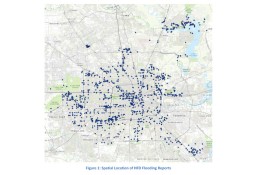
Scalable and Robust Prototype of Sensor Network for Real-Time Street Level Flood Measurement
Gary Woods and team from the civil and environmental engineering department created low-cost flood sensors that were tested on Rice’s campus in spring 2019.
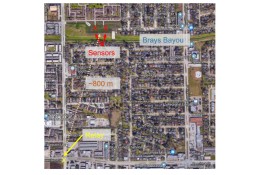
Lessons from Harvey: Crisis Informatics for Urban Resilience
This report suggests that public agencies work closely with social media companies and the operators of crowdsourced sites to install plans to incorporate these systems into the disaster recovery process.
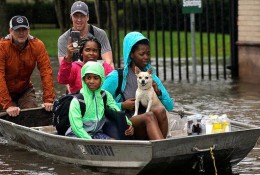
Rethinking Disaster Recovery and Mitigation Funding in the Wake of Hurricane Harvey
This research brief provides context about how the recovery process is unfolding in the Hurricane Harvey-affected region and how the area can prevent a similar situation from happening again.
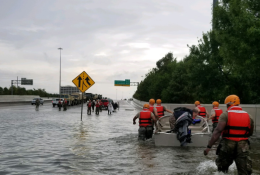
Building a More Resilient Housing System Event Report
This report by the Houston office of Local Initiatives Support Corporation and the Kinder Institute for Urban Research highlights key learnings and strategies from the “Building a More Resilient Housing System” event held on March 27, 2018.
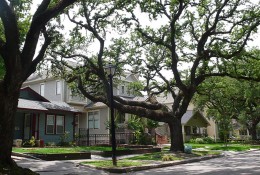
A look at best practices from other jurisdictions engaged in the hazard mitigation strategy of strategic property buyouts.
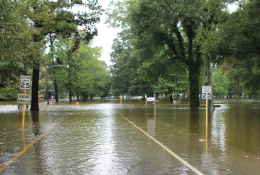
Hurricane Harvey Relief Fund Needs Assessment: Phase Two
The second phase of the Kinder Institute for Urban Research’s needs assessment work on behalf of the Greater Houston Community Foundation and the Hurricane Harvey Relief Fund.
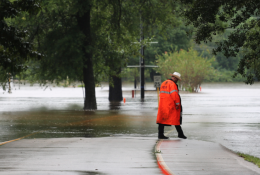
Funding Primer: Harvey Relief and Recovery
This report seeks to inform decision makers about the recovery funding process and potential gaps.
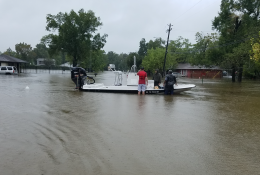
Hurricane Harvey Relief Fund Needs Assessment: Phase One
The first phase of the Kinder Institute for Urban Research’s needs assessment work on behalf of the Greater Houston Community Foundation and the Hurricane Harvey Relief Fund.
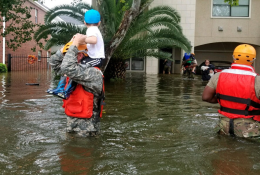
Coupled Flood Alert System and Infrastructure Risk Modeling for White Oak Bayou
The project team developed and implemented a radar-based flood alert system as a flood mitigation tool for the City of Houston and to inform infrastructure risk modeling, focusing on White Oak Bayou.
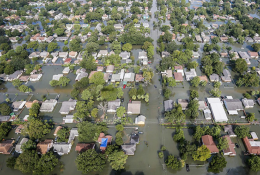
This report uses hydrological modeling to assess if mitigation techniques used throughout the city were successful.
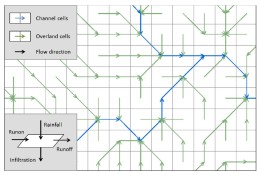
Urban Edge
Harris County has more FEMA-designated ‘disaster resilience zones’ than anywhere else
The Federal Emergency Management Agency this month began designating certain communities at high risk for natural disasters as “disaster resilience zones,” and Harris County — with 14 — has more than any other county in the United States.
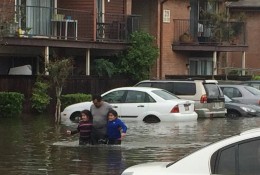
15 years after Hurricane Ike, Houston’s communities remain exposed
It has been 15 years since Hurricane Ike made landfall on the Gulf Coast and six years since Hurricane Harvey. These two storms had very different impacts on our region and provided different lessons for how we can be better prepared for weather disasters.
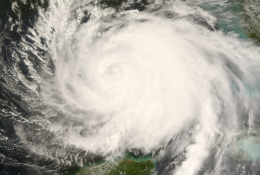
When it comes to flood buyouts, distance and race have played outsized roles
After Hurricane Ida hit New Orleans in 2021, Kirt Talamo, a fourth-generation Louisianan, decided it was time to go. He sold his flooded home, purchased his grandmother’s former house on New Orleans’ west bank, which hadn’t flooded, and moved in. It felt good to be back within its familiar walls, but his mind was on the future.
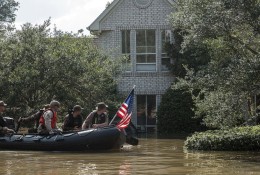
Rising flood insurance costs may be another blow to Houston’s affordability
Hurricane season is here, and with it comes a familiar feeling of dread in the Greater Houston area, particularly about floods. But more than five years after Hurricane Harvey, Houstonians may be less inclined to buy flood insurance because of cost increases that have begun to roll out in the last year, with the latest data from the Federal Emergency Management Agency showing that prices could go up by 75% in Harris County alone.
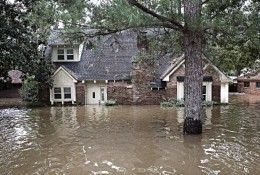
Q&A: How a green approach could help Houston shrink its flood risks—and its carbon footprint
If Houston took a nature-based approach to its drainage systems, it could help mitigate climate change, lessen the city’s severe heat and create job opportunities among other benefits, according to a recent report by the Rocky Mountain Institute.

Events
Sociologist Rachel T. Kimbro discusses her new book, “In Too Deep: Class and Mothering in a Flooded Community.”

Urban Reads: Kevin M. Fitzpatrick and Matthew L. Spialek
Kevin M. Fitzpatrick and Matthew L. Spialek discuss "Hurricane Harvey's Aftermath: Place, Race, and Inequality in Disaster Recovery."
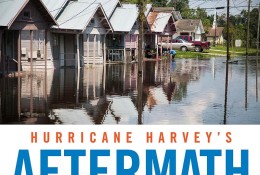
Texas Flood Registry: Measuring the Long-Term Impacts of Major Storms
This webinar shares findings from the 2020 Texas Flood Registry Report, which provides an update on the health and housing impacts of Hurricane Harvey and other major storms.

Physical Address
Rice University
Kraft Hall
6100 Main Street, Suite 305
Houston, TX 77005-1892
